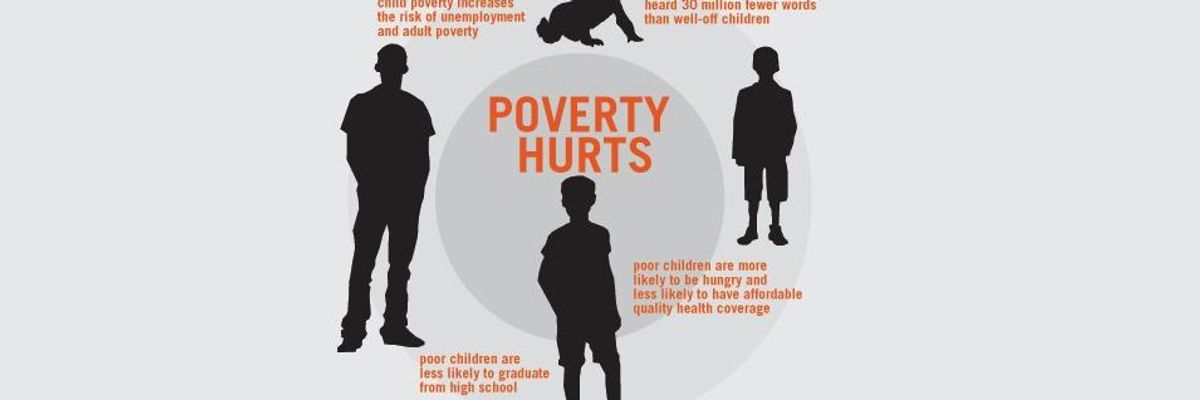More than 88,000 people have applied to enter the "poor door" at a new luxury condominium tower on the Upper West Side of Manhattan. Only one in 1,600 will win the lottery to live there. Some months ago a New York developer made headlines with the plans for this building, which takes advantage of zoning rules encouraging affordable housing by including some low-priced rental units along with the luxury condos for sale. A separate entrance for the people living in the low-income apartments continues with segregated living inside. Low-income tenants won't be allowed to use the pool, gym, private theater, or any of the other amenities reserved for the wealthy owners. Critics immediately pounced on this design as a modern-day form of Jim Crow. But the need for affordable housing is so overwhelming that when the deadline came this month to participate in a lottery for the spots behind the "poor door" tens of thousands applied. Meanwhile, The New York Times reports that most of the 219 luxury condos on the other side of the building have sold, some for more than $25 million.
The contrast between the haves and have-nots might be especially stark at that New York building, but millions of families across the country are finding themselves on the wrong side of the poor door. Housing is the single largest expense for most families and for far too many is growing increasingly out of reach. The number of families with worst-case housing needs increased from 6 million in 2007 to 8.5 million in 2011, including 3.2 million families with children, and the number of homeless public school students was 85 percent higher in 2012-2013 than before the recession.
Ayriq Sims has been one of those students. He and his siblings spent their childhood bouncing between unstable living arrangements, extended stays at relatives' homes, and homeless shelters. Even when Ayriq's family had somewhere to stay, he remembers all the times their lights and water were turned off, or when he went hungry because he'd made his younger siblings something to eat but there wasn't enough food left for him to eat too. Through it all Ayriq stayed committed to excelling in school and winning an academic scholarship to The Ohio State University. But even this year, his senior year in high school and on his way to college, he found himself homeless again. Ayriq says: "I don't want to be homeless again. I don't want that to be who I am."
The Children's Defense Fund honored Ayriq with a scholarship for overcoming tremendous odds. Homelessness and housing instability can have serious, negative consequences on children's emotional, cognitive, and physical development, academic achievement, and success as adults. Federal rental assistance, including public housing and vouchers for private rentals, helps about 5 million of the neediest low-income households afford a place to live. But because of funding limitations only about 1 in 4 needy families with children receives assistance. To add insult to injury, the Republican House and Senate budgets are proposing severe cuts to already inadequate and desperately needed housing subsidies. The White House estimates that compared to the President's budget proposal, the Republican House budget would cut housing vouchers for 133,000 families and housing assistance for 20,000 rural families. This is on top of the 2013 sequestration cuts that led to 100,000 fewer families receiving assistance by June 2014.
In our Children's Defense Fund report Ending Child Poverty Nowwe asked the nonprofit Urban Institute to study the impact of expanding the housing voucher program to better meet the huge need among poor and near-poor families with children who would have to pay more than half of their income to afford a fair market rent apartment. The Urban Institute found that providing enough subsidies to serve eligible families would reduce child poverty by 20.8 percent and lift 2.3 million children out of poverty -- the largest impact among the nine policy improvements we proposed in our report. More than 2.5 million more households would receive a subsidy, worth an average of $9,435. We could easily pay for this housing subsidy expansion by making fairer and common sense reforms to close corporate accounting tax loopholes, saving $58 billion a year. Or if we had more responsible and more just members of Congress on both sides of the aisle, instead of repealing the estate tax which amounts to a $27 billion a year giveaway to the 5,400 ultra-wealthy estates worth over $5.4 million -- in the top two-tenths of 1 percent -- as the Senate and House both voted to do, we could invest the $24 billion a year needed to ensure poor and near-poor children a chance to grow up in a stable place to call home.
Instead of making extraordinary students like Ayriq struggle to beat the odds every day we should be taking common sense and essential steps like this to change the odds. The stories about the tens of thousands of people seeking entry in New York's "poor door" are an urgent reminder of the need for more affordable housing across our country. Cutting back on already inadequate help to those most in need to give more tax welfare subsidies to those least in need is not the answer and is profoundly unjust. Families should not have to win a lottery to live in segregation just to get a roof over their heads.
